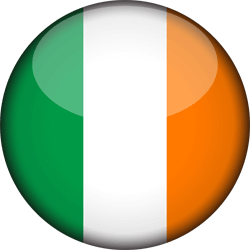International English Language Testing System (IELTS)
International English Language Testing System, widely known by the acronym IELTS, measures a candidate's ability to use all four language skills: listening, reading, writing and speaking in English. IELTS is jointly managed by the University of Cambridge ESOL Examinations, British Council and IDP Education Australia. The test is designed for those people who plan to study or work in an English-language speaking country. The test focuses on International English, which includes British English, American English and other varieties like Australian or South African English.
Around 6,000 academic and professional establishments around the world recognize IELTS scores as a valid indicator of ability to use English to communicate. Over 1,000,000 aspirants take IELTS to pursue their dream career abroad. IELTS, taken every year across 120 countries, is one of the fastest growing English language tests in the world.
IELTS is accepted by most British, Australian, Canadian, Irish and New Zealand educational institutions for higher education. IELTS is gaining recognition in the US as an alternative to IELTS. However, not all academic institutions in the US accept the IELTS score.
The Listening, Reading and Writing tests must be taken in one day; however the Speaking test can be taken on the same day or up to two days later upon the discretion of the test center. IELTS scores are recorded as levels of ability, called Bands. 9 bands is the highest for each of the language skills. Test results will be announced on the 13th day after the written examinations.
Test Format
Writing - 60 Minutes Listening - 30 Minutes Reading - 60 Minutes Speaking - 11 to 14 Minutes

STUDY IN AUSTRALIA

STUDY IN USA

STUDY IN UK
OUR PROGRAMMES

GMAT
Overseas Admission Consult(Oversac) has never and will never encounter any problem in registering students for the test .

ACT
A few months ago, James Ashley took the SAT. The SAT(Scholastic Aptitude Test)has long been the standard exam for those applying to universities in the US

GRE
Our pass mark in GRE is 300 out of the total score of 340 in both verbal and quantitative sections of the test. While that of the analytical writing section is at least 4

IELTS
IELTS … is divided into four sections of reading, listening, speaking and writing. We ensure each student has at least a score of 8 out of the total band of 9

PTE
All students applying to study in US, UK, Canada and any other English speaking country can take the PTE Academic test to prove their English

TOEFL
Our faculty ensures each student has a score of at least 95 out of the 120 mark allotted to the test. Many of our students have been performing

CAMBRIDGE GCE
At Overseas Admission Consult, we prepare students for the General Certificate of Education (GCE) Advanced Level qualification.

CGFNS
In order to obtain licensure as a nurse (RN or LPN/LVN) in the United States , it is important to note that licensure requirements differ from state to state

CIPMN
The Chartered Institute of Personnel Management of Nigeria (CIPMN) was established in 1968. The cradle of the Institute was the department of Management Studies,

SAT
Scholastic Aptitude Test (SAT) is divided into verbal, quantitative and analytical writing sections. Each area is handled by a lecturer who is a specialist in the section concerned

MCAT
MCAT (Medical College Admission Test) tests the basic concepts in biology, general and organic chemistry, and physics. The exam also assesses capacity for problem solving

PASSPORT
As a Nigerian citizen, there are certain international examinations you do that require your international passport and certain countries which do not require a visa upon entry so long

STUDY IN IRELAND

STUDY IN ESTONIA

STUDY IN CANADA
